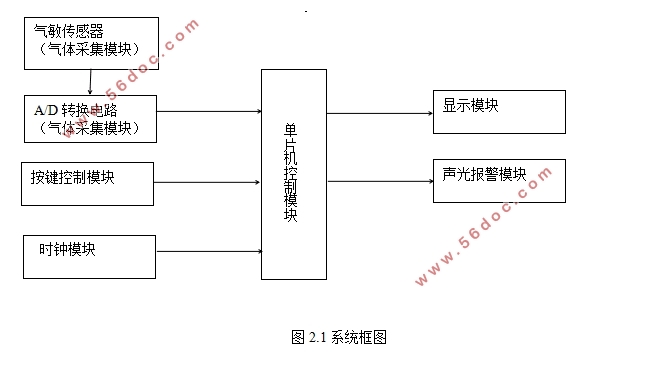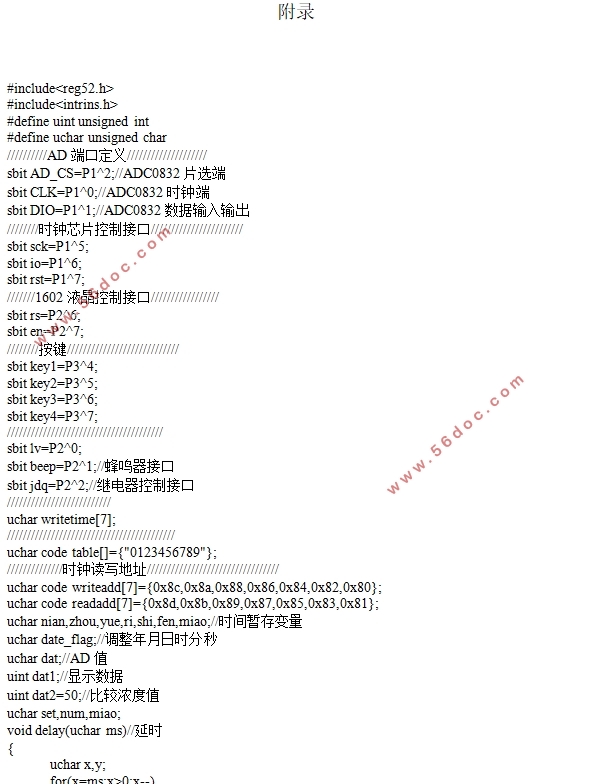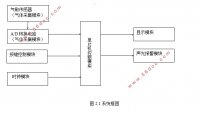家用煤气泄漏报警器设计
来源:56doc.com 资料编号:5D26703 资料等级:★★★★★ %E8%B5%84%E6%96%99%E7%BC%96%E5%8F%B7%EF%BC%9A5D26703
资料以网页介绍的为准,下载后不会有水印.资料仅供学习参考之用. 密 保 惠 帮助
资料介绍
家用煤气泄漏报警器设计(论文10200字)
摘要
随着天然气越来越广泛的应用到了人们的日常生活中,越来越多的燃气安全事故也随之而来。为了保证人们的财产安全以及人身安全,能及时检测燃气泄漏的报警装置是每家每户必不可少的一种家庭工具。
本文以MQ5半导体气敏传感器和51单片机为核心,设计了一款集检测、分析、报警为一体的智能煤气泄漏报警器。该报警系统通过MQ5气体传感器获得周围空气可燃气体浓度数据,经AD转换电路发送到单片机,单片机处理后反馈到显示模块和声光报警模块,判断是否触发警报。系统同时可通过点击按键来设置时间以及报警浓度上限。具有性能稳定,结构简单,价格低廉,操作简单,安全可靠,操作灵活等优点。
关键词:煤气检测 MQ5 报警 单片机
The Design Of Household Gas Leakage Alarm
ABSTRACT
With natural gas more widely applied to people's daily lives, more and more gas safety incidents follow. In order to keep the property as well as personal safety,an alarm device which can timely detect the gas leak is essential to each family. Especially for the elderly, families with children, it is essential to protect the safety of people in advance to detect gas leak.
Taking MQ5 semiconductor gas sensor and microcontroller core 51, we designed a device with detection, analysis and alarm as one of the intelligent gas leak alarm. It has many advantages such as stable performance, simple structure, low cost, simple operation, safe and reliable.
Adopted MQ5 gas sensor to get the data of gas concentration, and send the data to the microcontroller via the AD converter circuit,the microcontroller handles the data and determine whether start the sound and light alarm module. To set the time and alarm threshold levels by clicking on the button.
Keywords:gas detect;MQ5;alarm;microcontroller


目录
摘要 I
The Design Of Household Gas Leakage Alarm II
ABSTRACT II
第一章引言 1
1.1煤气泄露报警器的概述 1
1.2煤气泄漏报警器的现状 1
1.3已有报警器的优缺点 1
1.4设计思路 2
第二章硬件设计 3
2.1气体采集模块 3
2.1.1气敏传感器 4
2.1.2 A/D转换电路 5
2.2按键控制模块 6
2.3时钟模块 7
2.4单片机控制模块 8
2.4.1晶振电路 9
2.4.2复位电路 10
2.4.3上拉排阻 10
2.5显示模块 11
2.6声光报警模块(附带电磁阀) 12
2.6.1声报警系统 13
2.6.2光报警系统 13
2.6.3电磁阀和风扇 13
2.7 总结 13
第三章 软件设计 15
3.1主程序设计 15
3.2 AD转换模块程序设计 16
3.3显示模块程序设计 17
3.4按键模块程序设计 17
第四章 系统仿真与调试 19
4.1系统仿真 19
4.2仿真运行 20
4.3制作中遇到的问题 21
4.4实物图 22
总结 23
致谢 24
参考文献 25
附录 27
|





